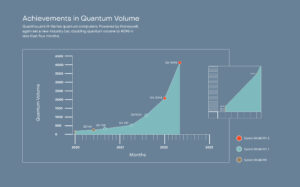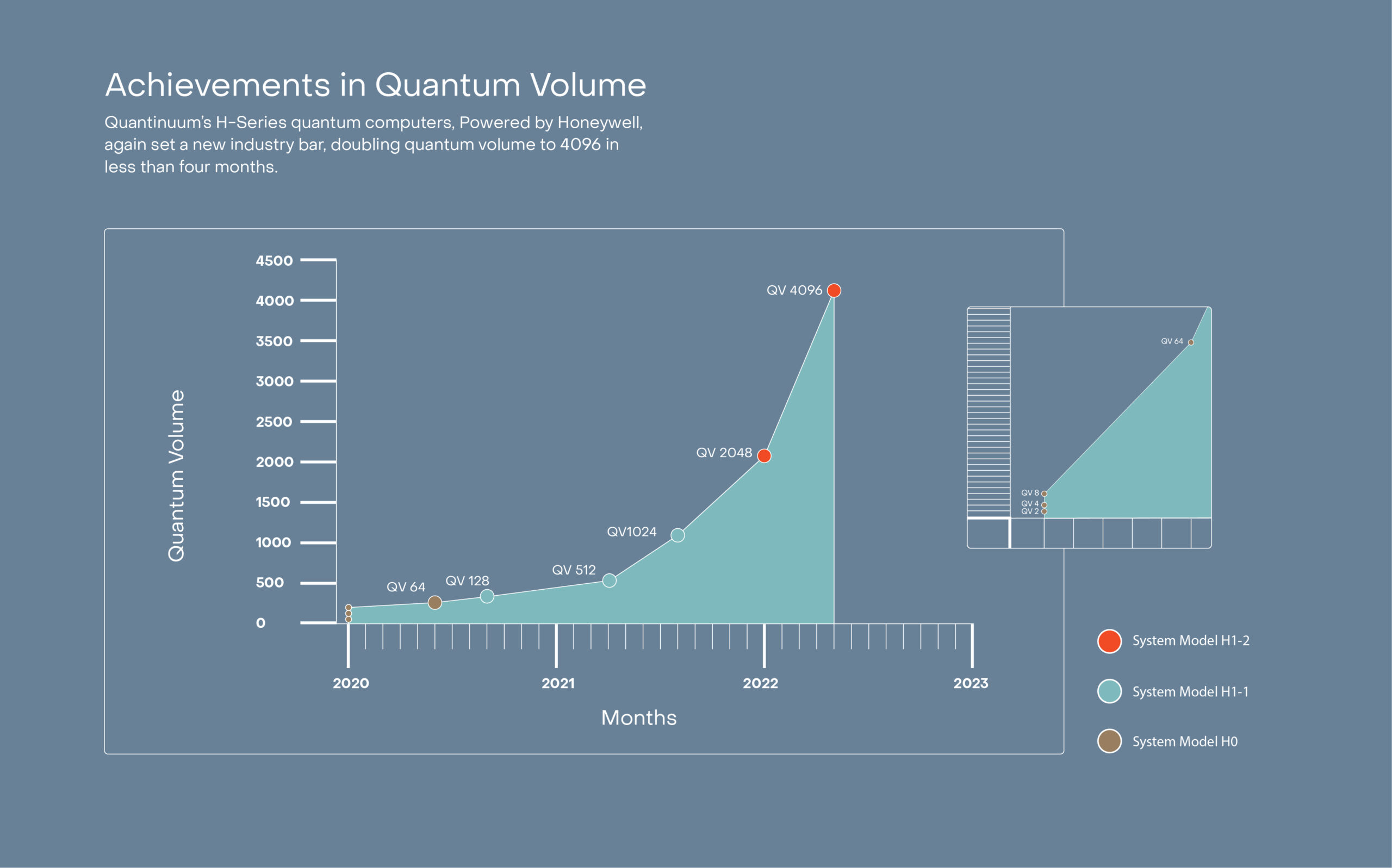
Quantinuum has reached another milestone in its quest to build the highest performing quantum computer in the world.
This week, the System Model H1-2 doubled its performance to become the first commercial quantum computer to pass Quantum Volume 4096, a benchmark introduced by IBM in 2019 to measure the overall capability and performance of quantum computers.
It marks the sixth time in two years that Quantinuum’s H-Series hardware, Powered by Honeywell, has set an industry record for measured quantum volume.
The achievement also fulfills a March 2020 promise made by Honeywell Quantum Solutions, which combined with Cambridge Quantum in late 2021 to form Quantinuum, to increase the performance of its trapped ion technologies by an order of magnitude each year for the next five years.
“This is the second consecutive year we’ve delivered on that promise and our commitment to developing the highest performing quantum hardware available,” said Tony Uttley, president and chief operating officer at Quantinuum.

Continuous upgrades
This week marks the second time in four months that the System Model H1-2, which came online late last year, has achieved a quantum volume milestone. It set a record in December 2021 when it passed Quantum Volume 2048.
Uttley attributed the doubling of performance to the consistent upgrades that are made.
Quantinuum currently operates two commercial quantum computers, the H1-1 and H1-2, which run projects for customers and then are taken offline for upgrades.
“This approach provides the opportunity for us to continuously add new updates and features to our systems, which enables us to improve performance,” he said. “We learn a lot about our machines by running projects and can make small upgrades or tweaks that keep our fidelities high.”
The data
The average single-qubit gate fidelity for this milestone was 99.994(3)%, the average two-qubit gate fidelity was 99.81(3)% with fully-connected qubits, and measurement fidelity was 99.72(5)%. The Quantinuum team ran 200 circuits with 100 shots each, using standard QV optimization techniques to yield an average of 152.97 two-qubit gates per circuit.
The System Model H1-2 successfully passed the quantum volume 4096 benchmark, outputting heavy outcomes 69.04% of the time, which is above the 2/3 threshold with greater than 99.99% confidence.
The team used a new method developed by Quantinuum researchers, Dr. Charlie Baldwin and Dr. Karl Mayer, to calculate the confidence interval.
The plot above shows the individual heavy output probability for each circuit in the Quantum Volume 4096 test. The blue line is the cumulative average heavy output probability and the green regions are the cumulative two-sigma confidence interval calculated by the new method. The heavy output probability crosses the 2/3 threshold with two-sigma confidence after 100 circuits.
The plot above shows the growth of measured quantum volume by Quantinuum. For each test, the heavy output probability ‘h’ is listed and the system is identified by the marker type. The dashed grey line shows our target scaling of increasing QV × 10 yearly.
What’s next?
Uttley said the next step is to increase the number of qubits on both Quantinuum machines and to continue to improve gate fidelities.
“The System Model H1-2 used all 12 of its fully connected qubits to pass Quantum Volume 4096,” he said. “We have reached the limit of what we can do with 12 qubits. To continue to improve performance, we need to add qubits. So keep watching what happens soon.”
If you found this article to be informative, you can explore more current quantum news here, exclusives, interviews, and podcasts.



















